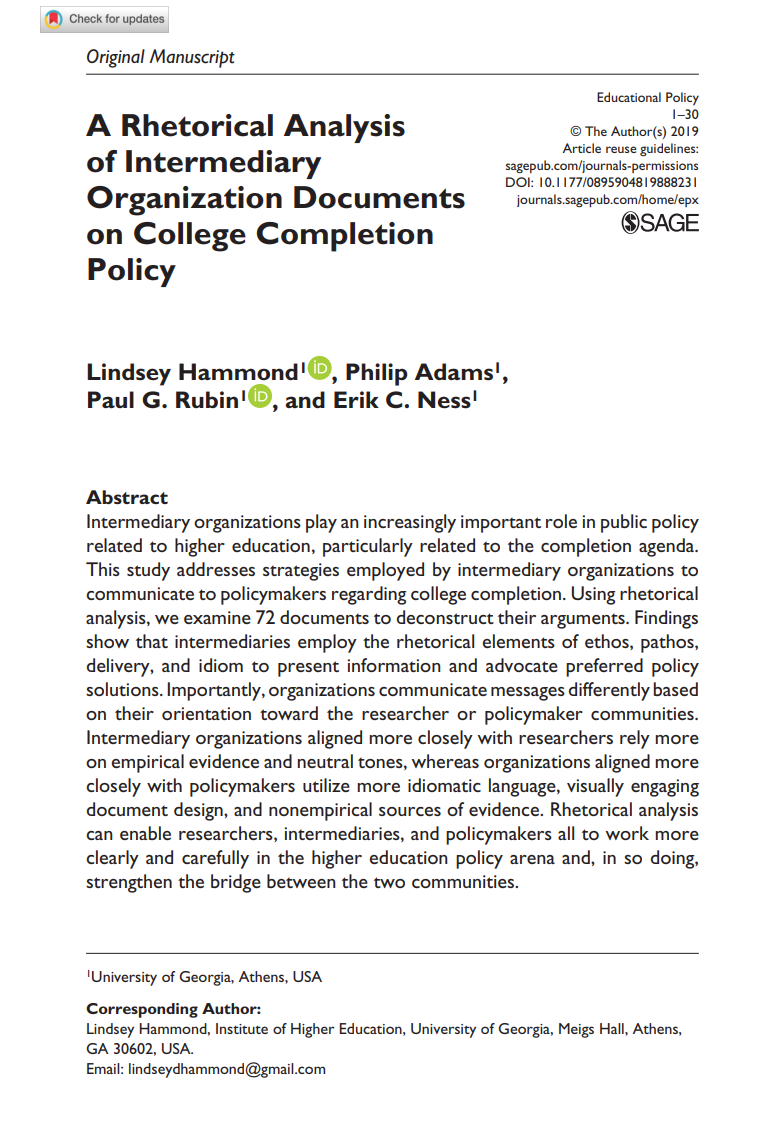A Rhetorical Analysis of Intermediary Organization Documents on College Completion Policy
Author(s): Lindsey Hammond, Philip Adams, Paul G. Rubin, Erik C. Ness
Publisher: Educational Policy
Year: 2019
Access Publication*Subscription Required
Description
Intermediary organizations play an increasingly important role in public policy related to higher education, particularly related to the completion agenda. This study addresses strategies employed by intermediary organizations to communicate to policymakers regarding college completion. Using rhetorical analysis, we examine 72 documents to deconstruct their arguments. Findings show that intermediaries employ the rhetorical elements of ethos, pathos, delivery, and idiom to present information and advocate preferred policy solutions. Importantly, organizations communicate messages differently based on their orientation toward the researcher or policymaker communities. Intermediary organizations aligned more closely with researchers rely more on empirical evidence and neutral tones, whereas organizations aligned more closely with policymakers utilize more idiomatic language, visually engaging document design, and nonempirical sources of evidence. Rhetorical analysis can enable researchers, intermediaries, and policymakers all to work more clearly and carefully in the higher education policy arena and, in so doing, strengthen the bridge between the two communities.

